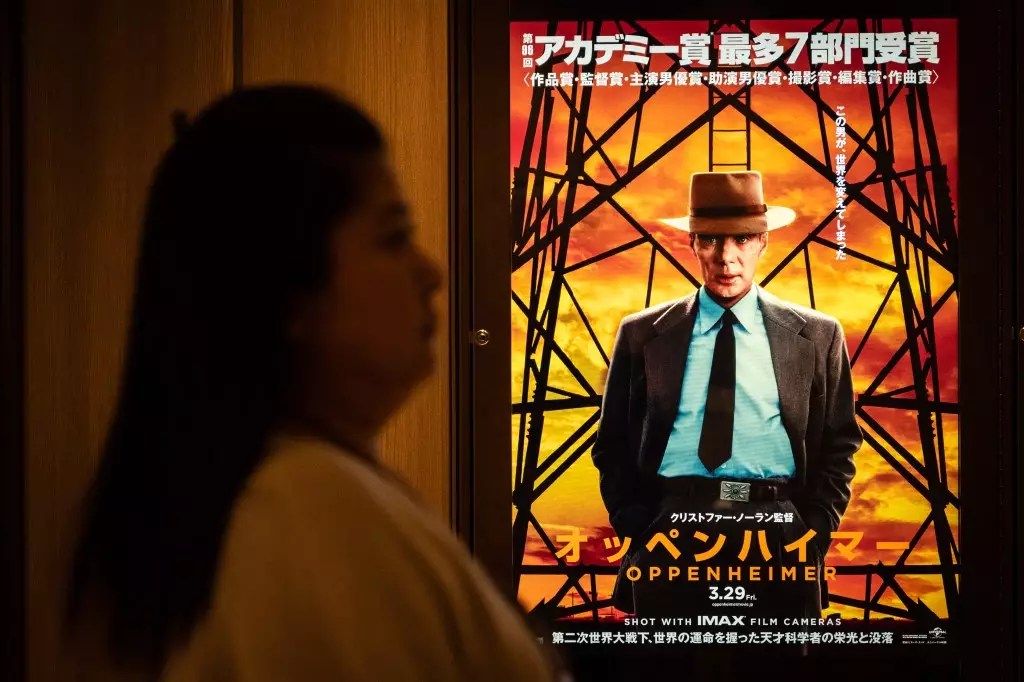Christopher Nolan’s film Oppenheimer has finally made its way to Japanese cinemas after eight months of its global release. The Best Picture Oscar winner, focusing on the race to develop the atomic bomb, has garnered a mixture of reactions from audiences. Some have praised the movie for its portrayal of the protagonist, while others have found it uncomfortable to watch. There have also been reports of confusion surrounding the absence of explicit depictions of the devastating 1945 bombings of Hiroshima and Nagasaki. Nolan explained this decision by stating that the film is narrated subjectively from the perspective of the physicist, Oppenheimer. The choice was made to stay true to his experience since he learned about the bombings through the radio, just like the rest of the world.
The decision to release Oppenheimer in Japan was met with a fair share of challenges due to sensitivities surrounding the subject matter. Universal’s local distribution partner, Bitters End, announced that the film would be shown in Japanese cinemas in 2024 after undergoing months of thoughtful dialogue to address the particular sensitivity of the Japanese audience. Despite the initial concerns, the film debuted in Japan on March 29, positioning the release strategically after the Oscars, where it received seven awards. Some cinemas in Japan even placed warning signs at their entrances alerting moviegoers about the film’s scenes of nuclear tests and images that could evoke the devastation caused by the atomic bombs.
Audiences in Japan had varying responses to Oppenheimer, highlighting different aspects of the film that resonated with them. Some viewers, like a young Hiroshima resident, felt that Oppenheimer was portrayed as a great man but couldn’t hide his regret and guilt. Others, such as an anti-nuclear campaigner, expressed disgust at scenes that seemed to celebrate the creation and dropping of the bomb. A student mentioned gaining a new perspective from the film, learning about the American and global views on the use of atomic bombs. Despite recognizing the film’s merits, a Hiroshima resident shared discomfort with the portrayal of the atomic bomb, given their personal connection to the historical event.
The film’s depiction of Oppenheimer’s internal struggles and the ethical dilemmas surrounding the atomic bomb resonated with some viewers, while others felt that the horrors of nuclear weapons were not adequately represented. A survivor of the Nagasaki bombing expressed a desire for the film to shed light on the full story, including the victims, to promote a future without nuclear weapons. However, another Hiroshima resident noted that the film’s focus on Oppenheimer’s internal conflict was essential and justified. Despite the mixed reactions, there is a consensus on the film’s potential to prompt discussions on the implications of nuclear weapons and the importance of reflecting on historical tragedies.
Christopher Nolan’s Oppenheimer has sparked diverse reactions among Japanese audiences, reflecting the complexity of portraying sensitive historical events on the big screen. As viewers grapple with the ethical and moral dilemmas presented in the film, it serves as a reminder of the enduring impact of the atomic bombings of Hiroshima and Nagasaki. While some perceive the film as an anti-nuclear narrative, others call for a more inclusive representation of victims and survivors to foster a deeper understanding of the consequences of nuclear warfare. Ultimately, Oppenheimer serves as a thought-provoking cinematic exploration of one of the most significant scientific achievements and tragedies of the 20th century.


Leave a Reply